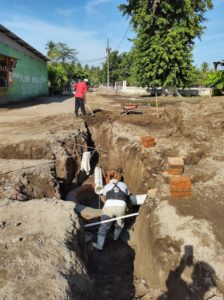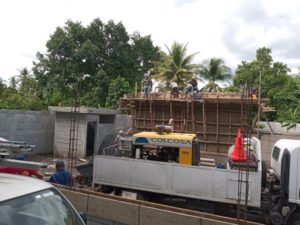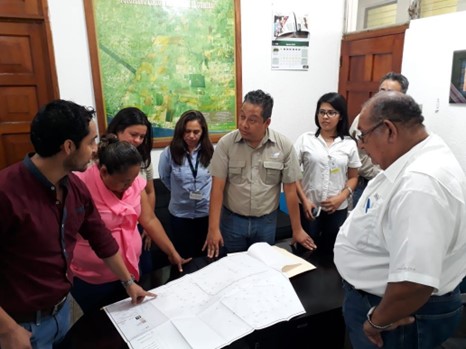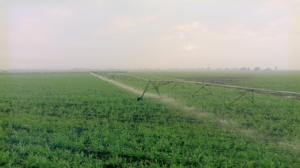In September 2015, the United Nations General Assembly unanimously establishes 17 Sustainable Development Goals (SDGs) with a total of 169 goals and 230 related global indicators designed to stimulate concrete actions.
In order to comply with the implementation of the SDGs, in 2018 the United Nations Department of Economic and Social Affairs created the Global Network for Sustainable Water and Energy Solutions with links between the sustainable development goals -ODS- number 6 (water and sanitation) and number 7 (Ensuring access to sustainable, reliable and modern energy for all) with multiple stakeholders from all regions including Guatemala with the participation of the Guatemalan Sugar Producers Association -Asazgua- (https://www.un.org/en/water-energy-network/page/members).
In order to achieve Sustainable Development, it is important not only to include the economic, social and environmental axes but to go a little further, and that is why proposes five fundamental dimensions on which to base it: people, planet, prosperity, peace and alliances. These dimensions are present in its objectives and goals, which work in an integrated and indivisible way to address the challenges in a global way and so that they can be applied universally, always with an objective vision of the different realities, capacities and levels of development of actors at the national, regional or local level, as well as at the business, academic or social level.
The Global Network for Sustainable Water and Energy Solutions, works with the vision of a world in which there is an equitable and sustainable use and management of water and energy resources for all, in support of human well-being, the integrity of ecosystems and a strong and inclusive economy under the umbrella for Sustainable Development.
The objective of the Network is to provide a global platform for all stakeholders to improve their capacities and signal their high-level commitment to the integrated approach of SDG6 and SDG7 to support the implementation of the SDGs by fulfilling the call of the Secretary General of the United Nations to mobilize at all levels, global, local, and social. For this reason, Asazgua has taken the initiative and, as always, has taken a step forward working hand in hand with the Network to share its experiences and the projects developed.
For this reason, a series of activities and publications have been carried out to create spaces for dialogue to share best practices and experiences on water-energy interrelationships and their contributions to other SDGs and reinforce capacity building, focusing on planning, the design, implementation and monitoring of policies, regulations, business models and investments to effectively manage the interlinkages between water and energy.
The COVID-19 Pandemic has forced us to make unforeseen changes in our lives, but it has given us the opportunity to analyze the need to improve and share knowledge and experiences, since the time to act is now, which is why the actions of the Network have not stopped and have been carried out virtually. Below, we present the main activities in which the Guatemalan Sugar Producers Association has participated.
On September 24th, 2021, a side event on the “Energy Pact of the Global Network for Sustainable Water and Energy Solutions” was held in the framework of the High-Level Dialogue on Energy. This event showcased the three participating organizations of the Network with voluntary commitments: The Guatemalan Sugar Producers Association –Asazgua, – Itaipu Binacional and Canal de Isabel II, which was presented by the Under Secretary of the United Nations Mr. Liu Zhenmin. During the event, the commitments of the three institutions were presented and discussed and they explained how they support the transformative paths in energy and water and expanded actions supporting the objectives to face climate change.
Months ago, in June, the Guatemalan Sugar Producers Association and the Spanish water company of the Community of Madrid, Canal de Isabel II, each undertook to expand their electricity generation to cover 100% of their electricity demand with 100% clean renewable sources.
In addition, Asazgua promised to meet at least 30% of Guatemala’s electricity demand during the three dry months of the year through renewable energy, increase ethanol production for transportation by 20%, and develop a new way of bioenergy from biowaste.
In June, the Global Network for Sustainable Water and Energy Solutions, in cooperation with its member Asazgua, brought together multiple stakeholders to discuss and showcase existing initiatives and disseminate information on bioenergy. This event was moderated by Jinlei Feng, IRENA Program Officer, and had the participation of Mr. Ivan Vera, UNDESA Advisor and a panel of experts made up of representatives of the Government of the State of Sao Paulo in Brazil, IIASA, UNICA in Brazil and Canal of Isabel II in Spain, all shared experiences on integrated water and energy solutions related to bioenergy.
Likewise, Asazgua participated in various events on sustainable water and energy solutions to address climate change during the Decade of Action. At the central event, world leaders discussed the interrelationships and interdependence of the water and energy sector and showcased existing initiatives to accelerate the adoption of integrated water and energy solutions.
Last November during the COP26 side event: Sustainable water and energy solutions that support climate change objectives during the Decade of Action and beyond, there was participation and presentation of the Private Institute for Climate Change Research -ICC-.
Among the results obtained is the preparation of the report on sustainable water and energy solutions to address climate change with the collaboration of Asazgua, which aims to disseminate the debate of experts and public policies on sustainable water and energy solutions that address climate change in order to facilitate the exchange of information, improve local, national and international cooperation and stimulate collaborative development actions that “leave no one behind” in terms of water supply and sanitation, access to sustainable energy and protection against possible negative impacts of climate change. https://www.un.org/en/water-energy-network/page/new-and-events

















 During his speeches, Alfredo Vila, president of the Latin American Sugar Producers Association -UNALA- and the Guatemalan Sugar Producers Association -Asazgua- explained that the Guatemalan Sugar Industry has implemented systems for the efficient use of water, renewable energy, and care of the soil, and has been recognized as an international benchmark in good practices and recognized due to its work into achieving the SDGs.
During his speeches, Alfredo Vila, president of the Latin American Sugar Producers Association -UNALA- and the Guatemalan Sugar Producers Association -Asazgua- explained that the Guatemalan Sugar Industry has implemented systems for the efficient use of water, renewable energy, and care of the soil, and has been recognized as an international benchmark in good practices and recognized due to its work into achieving the SDGs.

 The members of the Ocosito Technical Committee; included the Guatemalan Sugar Industry have promoted a program for the restoration and conservation of the basin through reforestation for the creation of
The members of the Ocosito Technical Committee; included the Guatemalan Sugar Industry have promoted a program for the restoration and conservation of the basin through reforestation for the creation of  The technical committee was born in 2016 out of the need to organize and make rational use of water. In 2021, promoted by the Vice Ministry of Water, through Government Agreement 19-2021, it was institutionalized as a more comprehensive technical organization for the recovery and conservation of the Ocosito basin.
The technical committee was born in 2016 out of the need to organize and make rational use of water. In 2021, promoted by the Vice Ministry of Water, through Government Agreement 19-2021, it was institutionalized as a more comprehensive technical organization for the recovery and conservation of the Ocosito basin.

 Guatemala is a country with high vulnerability to the effects of Climate Change and agriculture is one of the sectors most affected by climatic variations. That is why the Sugar Industry has implemented more efficient irrigation systems, which use less water and apply only the amount of the vital liquid that the plant needs.
Guatemala is a country with high vulnerability to the effects of Climate Change and agriculture is one of the sectors most affected by climatic variations. That is why the Sugar Industry has implemented more efficient irrigation systems, which use less water and apply only the amount of the vital liquid that the plant needs. Each ton of sugar cane produced in Guatemala uses 47% less water than the cane produced worldwide
Each ton of sugar cane produced in Guatemala uses 47% less water than the cane produced worldwide
